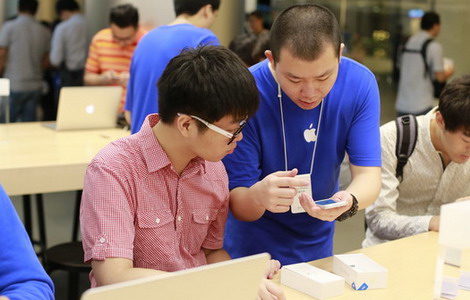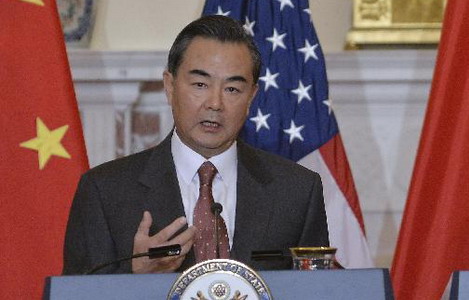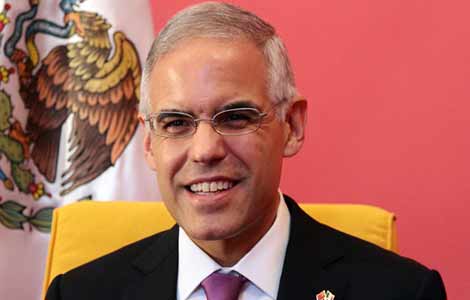Bold ideas call for intelligent execution
Updated: 2013-09-19 14:59
By Cecily Liu (China Daily)
|
||||||||
Enterprising Chinese investors have to be cautious before expanding abroad
When Europeans look at Chinese investment coming in, there generally seem to be two overriding emotions: a white (or a dark Bale?) knight riding in to help fix the continent's woes; or ill-intentioned Chinese behemoths set to take over their economy.
But some grand Chinese projects in Europe recently suggest that far from being angels or demons, even Chinese homegrown heroes may be stumbling, or even bumbling, in their quest to expand overseas.
Take, for example, top property developer ABP China Holding. In May, it announced a $1.51 billion (1.16 billion euros) project to transform a 14-hectare site at the derelict Royal Albert Dock in London into the city's third financial district.
ABP chairman Xu Weiping said the project would take 10 years to complete, and create 20,000 jobs. Once ready, it would mainly host the UK offices of Chinese and Asian businesses, and European businesses keen to do business in Asia, he said.
ABP's plans - which we assume are based on sound financial considerations - have been heartily embraced by the London mayor, Boris Johnson, and the Newham local council, where the site is.
But some questions remain unanswered.

First, the idea of building a center for Chinese and Asian businesses in the ethnically-diverse city of London is, say, curious.
While the number of Chinese and Asian businesses setting up offices in Britain is certainly growing, they are scattered, and for good reason. Manufacturing companies may prefer the English Midlands due to proximity to component suppliers and manufacturing facilities; retail brands may prefer central London's shopping districts; and financial services firms may prefer the city's famed Square Mile to be close to customers.
Besides, the task of building a business center 30 minutes away from the hustle and bustle of central London's established business district is a challenge in itself. A 40-minute train ride could whisk one from London's densely-populated city center to outlying areas like Kent and Welling, rural suburbs; so the development's location being 30 minutes away from London is not much of an advantage.
ABP proclaimed its business center's proximity to London City Airport as a key advantage but London City Airport has no direct flights to Asia at the moment.
The airport has direct flights to only 48 destinations (compared with 184 at London Heathrow), most of which are in Europe. Therefore Asian businesses at ABP's business park will probably find their employees flying to London Heathrow in West London, and spending an-hour-and-half to arrive at their offices in East London.
Also, the business park's proximity to London City Airport means it is height-restricted, so it will find it difficult to make the best use of the land value.
Therefore ABP's plan to generate 30-40 percent of the funding from pre-sales of the business units puts the viability of the project in doubt. As one property developer told the Financial Times earlier, the rent ABP needs would be "far higher than has ever been paid in the area".
But when journalists asked Xu how he plans to attract Asian companies, his reply was: "Good wine needs no bush".
Such an attitude could easily strike a British audience as Xu's version of Chinese humor, but may reflect a self-assurance common to many Chinese entrepreneurs who made their fortune during China's economic miracle in the past three decades.
Great transformation condensed into a short period than most Western economies could ever achieve meant entrepreneurs who acted fast and with confidence became winners.
Over the past 30 years, China's lack of a mature legal framework and tested business models meant that entrepreneurs often had to tread paths unknown. With no business school case studies to draw on, they simply relied on chutzpah.
As China's economy matures, its companies are increasingly looking internationally for new opportunities. But Chinese business leaders need to exercise caution.
What, for example, worked for China's 67-year-old beverage tycoon Zong Qinghou - who started his business Wahaha by selling snacks at schools in 1987 and later hit upon and made the best out of selling mineral water when many Chinese still lacked running water in their homes - may not work in Western markets.
Zong, who has been traveling across Europe since last year to attract European retail brands to open stores in Wahaha's branded malls in China, has realized the task is harder than he imagined.
He told me in London earlier this year that the European retail brands already in his company's first shopping mall have not given him the discounts he hoped, but he believes it will come with scale, as he plans to open 100 such malls in the next few years.
As the WAOW malls aim to provide foreign retail brands at lower prices than High Street stores, there is reason to worry. Given the first WAOW mall's lack of footfalls, experts are not optimistic, according to media reports from finance.ifeng.com.
These examples suggest that gung-ho Chinese entrepreneurs have to realize that what worked during the days of the dizzying transformation of their country might not work elsewhere.
The author is China Daily's London correspondent. Contact the writer at cecily.liu@chinadaily.com.cn.
(China Daily USA 09/19/2013 page12)

 iPhone 5s, iPhone 5c hit Chinese market
iPhone 5s, iPhone 5c hit Chinese market
 China to play 'constructive' role on Syria: FM
China to play 'constructive' role on Syria: FM
 iPhone 5s, iPhone 5c hit Chinese market
iPhone 5s, iPhone 5c hit Chinese market
 Faces of Tibet
Faces of Tibet
 Full moon across China
Full moon across China
 Wearable technology, the new game-changer
Wearable technology, the new game-changer
 Tapestry of Chinese culture and a Harvard teen's feeling
Tapestry of Chinese culture and a Harvard teen's feeling
 A simple but pure festival tradition
A simple but pure festival tradition
Most Viewed
Editor's Picks

|

|

|

|

|

|
Today's Top News
UN lauds China on food waste efforts
Chinese firms face trust deficit
13 injured in Chicago park shooting
Wang and Kerry meet in DC
Belgian zoo owner set to host Chinese pandas
Trending news across China
Fast-track process sees more NGOs
Beijing sends out positive smoke signals
US Weekly

|

|





